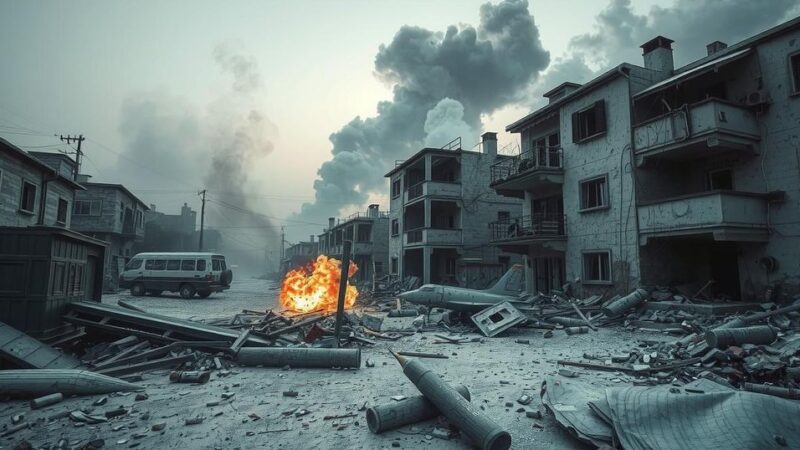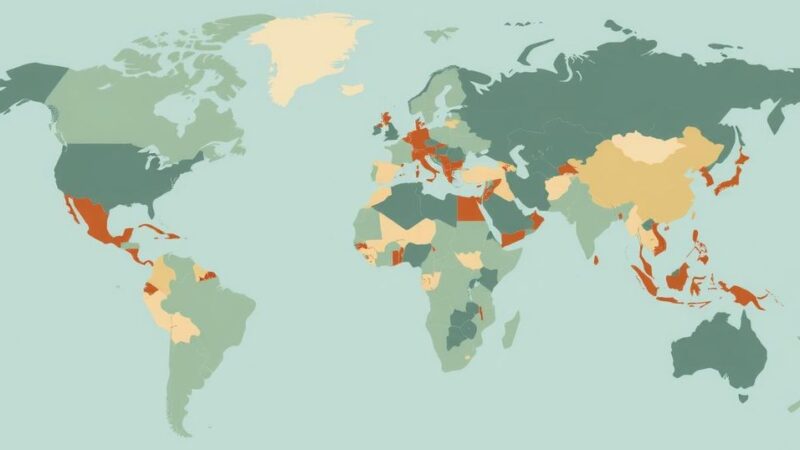Over one million individuals have fled to South Sudan amid the ongoing crisis in Sudan, marking a significant humanitarian emergency. Reports from IOM and UNHCR detail the escalating displacement due to violent conflict, emphasizing the urgent need for humanitarian aid. Most are South Sudanese, alongside Sudanese nationals and others seeking safety. Local resources for healthcare and sanitation are critically stretched, exacerbated by a cholera outbreak. Immediate international support is crucial for addressing the dire needs of both displaced individuals and communities hosting them.
In a significant humanitarian development, over one million individuals have fled to South Sudan due to the ongoing conflict in Sudan. This mass displacement, as reported by the International Organization for Migration (IOM) and the United Nations High Commissioner for Refugees (UNHCR), reflects nearly two years of fatal violence, particularly escalating since April 2023. A notable 770,200 people have crossed into South Sudan through various strategic points, with Wunthou (Joda) being a primary entry location.
The majority of the new arrivals are South Sudanese who previously sought refuge in Sudan, many having escaped South Sudan’s Civil War originally. In addition to South Sudanese nationals, numerous Sudanese citizens and other foreign nationals from Sudan have crossed the border seeking safety. Various organizations are conducting essential biometric registration and monitoring to accurately track these figures.
IOM and UNHCR have raised concerns over the alarming rise in displacement, warning of the urgent need for humanitarian support. Both organizations have provided critical assistance, including transport, cash aid, shelter, water, and health services. They emphasize the ongoing support to both displaced families and the communities hosting them is crucial to address the implications of this crisis.
Sanaa Abdalla Omer from UNHCR stated, “The arrival of over a million people into South Sudan is stark and sobering statistic,” highlighting the escalating scale of the crisis and stressing cooperation with partners to deliver critical aid. Despite the resilience shown by local communities, the demand for vital resources remains unchecked.
Vijaya Souri from IOM affirmed the commitment to meet urgent needs as the flow of displaced individuals into South Sudan grows. However, local services such as healthcare and water systems are nearing collapse due to increased demand. The current cholera outbreak also emphasizes the need for improved water quality and healthcare systems in the region.
With over 16,000 individuals currently residing in transit centers built for only 4,800, the pressure on humanitarian support services is immense. The South Sudan Humanitarian Needs and Response Plan for 2025 anticipates a requirement to accommodate 337,000 new arrivals. Both IOM and UNHCR continue to coordinate relief at entry points, assisting the relocation of refugees, but resource constraints persist and further support is necessary.
The displacement crisis in South Sudan has heightened as a direct consequence of sustained conflicts in Sudan, particularly escalating since April 2023. Historically, many South Sudanese sought refuge in Sudan during past conflicts, only to be forced to flee back to South Sudan due to renewed violence. As humanitarian organizations attempt to manage this crisis, the challenges multiply with the increasing number of arrivals and limited local resources, particularly in public health and sanitation, further exacerbated by ongoing cholera outbreaks. In light of this situation, continued support from international donors is critical to stabilize the humanitarian response plan, which is already overwhelmed by unprecedented numbers of displaced individuals.
In summary, South Sudan is facing an unprecedented humanitarian crisis, with over one million arrivals from Sudan amidst ongoing violence. As organizations like IOM and UNHCR work tirelessly to provide essential support, local resources are dangerously overstretched. Immediate action from the international community is required to improve conditions for both the displaced individuals and their host communities. The situation demands urgent humanitarian assistance and sustainable solutions to effectively address the growing needs.
Original Source: reliefweb.int






